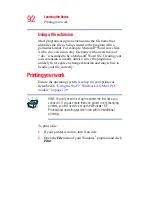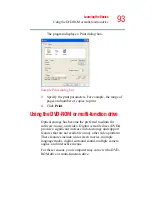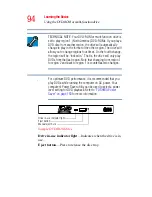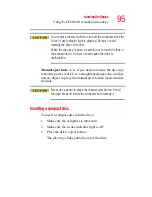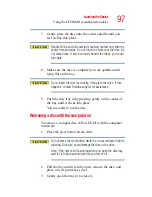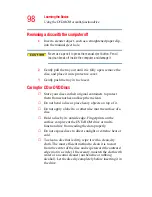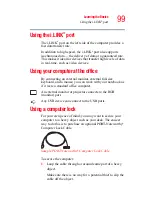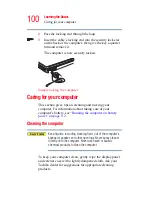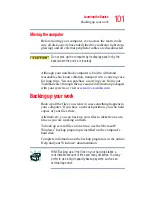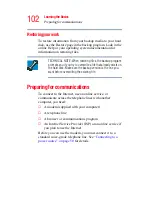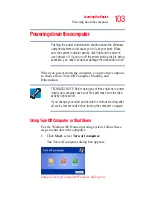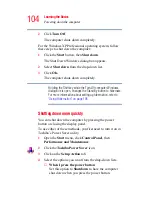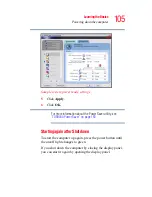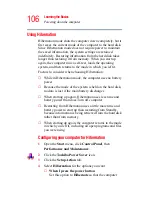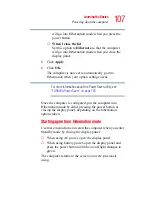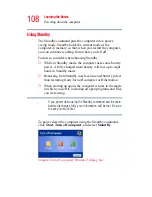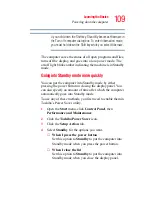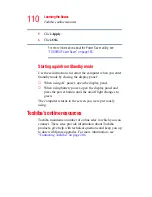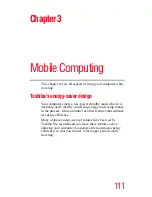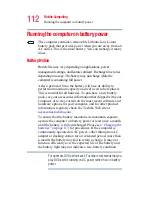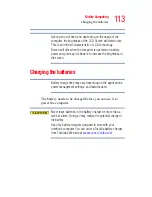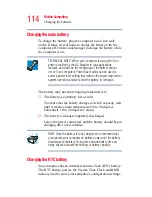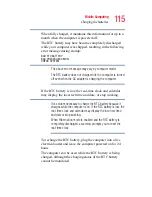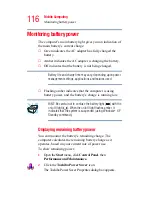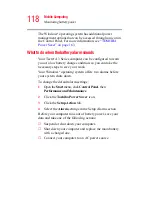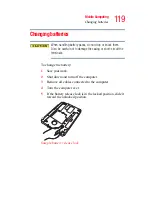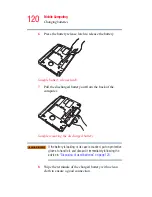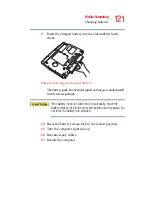
106
Learning the Basics
Powering down the computer
Using Hibernation
Hibernation mode shuts the computer down completely, but it
first saves the current mode of the computer to the hard disk.
Since Hibernation mode does not require power to maintain
the saved information, the system settings are retained
indefinitely. Restoring information from the hard disk takes
longer than restoring it from memory. When you start up
again, the computer runs a self-test, loads the operating
system, and then returns to the mode in which you left it.
Factors to consider when choosing Hibernation:
❖
While in Hibernation mode, the computer uses no battery
power
❖
Because the mode of the system is held on the hard disk,
no data is lost if the main battery discharges
❖
When starting up again, Hibernation uses less time and
battery power than does Turn off computer
❖
Restarting from Hibernation uses a little more time and
battery power to start up than restarting from Standby,
because information is being retrieved from the hard disk
rather than from memory
❖
When starting up again, the computer returns to the mode
in which you left it, including all open programs and files
you were using
Configuring your computer for Hibernation
1
Open the Start menu, click Control Panel, then
Performance and Maintenance.
2
Click the Toshiba Power Saver icon.
3
Click the Setup Action tab.
4
Select Hibernation for the options you want.
❖
When I press the power button
Set this option to Hibernate so that the computer

